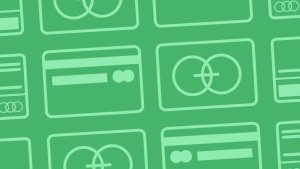
Being debt-free is great, but if you’ve avoided building a credit history, it might hurt you in the long run.
While we’re always hearing about the student loan and credit card debts we collectively carry, there are actually a few of us who don’t have loans to our names or balances on our cards. Some people avoid credit cards altogether and opt to pay in cash, assuming it’s better to be free of financial products that could potentially lead to trouble.
While this isn’t a bad way of thinking, it’s not accurate to say that avoiding credit is better than having a dinged-up score. If you ever face the decision to finance a major purchase, having no credit at all may cause more problems than having a bad credit score. You could face obstacles when you fill out a loan application for a new car, or need to use your credit score to prove your ability to pay a monthly bill, sign the lease on an apartment, or set up your utilities.
What’s wrong with no credit?
When you don’t have any credit, it means you haven’t done anything to establish your credit history. Maybe you haven’t taken out any loans in your name and you don’t have a line of credit. That can be a good thing considering you have no debt either! But having no credit can hinder you if you’re looking to get a loan on a major purchase. A bank or other lender has nothing to go on when evaluating how likely you are to pay back the borrowed money. There’s no history to analyze, which turns you into a large question mark for them. Essentially, they’ll have to guess at how likely you are to repay the loan. And unsurprisingly, most lenders don’t want to play guessing games when it comes to approving large financing decisions.
Bad credit, on the other hand, does give the financial institution something to work with — providing them with information about your habits. Unfortunately, a bad credit score could show a lender that you’re a risky borrower, which could end in a less than favorable interest rate. You may pay more over time in interest on their loan, but you can still receive approval. When it comes to getting approved for a loan, it may be better to have bad credit over no credit. Chances are, you’ll qualify for something — even if the terms aren’t what you hoped for.
How to responsibly build a good credit history
It’s smart to plan ahead if you don’t have a credit history (or if you have a very short history). Just note that it can take awhile, so make sure to give yourself plenty of time to build a good credit score before you plan to make a big purchase. Start by opening a credit card at your bank. Your bank can connect your new card to your existing checking account, so you can view and manage everything in one place and get into the habit of paying off your monthly balance.
Use your credit card consistently and responsibly over time — and always make sure you’re paying off your purchases on time and in full. With that being said, don’t use up all your available credit each month (even if you’re paying it all off). Spending up to your credit limit can impact your debt-to-credit utilization ratio , which can hurt your credit score. Another option is to become an authorized user on someone else’s credit card if you don’t want your own — but be careful. If that person fails to manage their own credit wisely, yours could be negatively impacted too.
Repairing the damage from a bad credit score
All things considered, a bad credit score isn’t ideal. Bad credit can also hurt in the form of increased costs over your loan’s lifetime — if you’re able to secure one in the first place. You can check your credit by pulling your report for free, once a year. Check it for errors and contact any or all of the three credit bureaus if you find a mistake.
If everything looks good, move to step two: Get your credit score by going to a site like Credit Karma or Credit.com. You can also check with your bank; some banks will provide your credit score free of charge if you have a credit card with them. Is your credit in rough shape? Start repairing the damage by taking the following actions:
- Make all loan and credit card payments on time and in full.
- Don’t close out old accounts — doing so can affect the average age of your credit history, and the longer you have established lines of credit, the better for your overall score.
- Keep a low debt-to-credit utilization ratio.
- Don’t open many accounts at once or incur multiple inquiries on your credit over the span of a few weeks.
It takes some time to improve bad credit, but it’ll pay off in the end (no pun intended). Having a good credit score — and some positive credit history — can go a long way in helping you secure a loan at the best interest rate available.
Do you have experience with no credit or bad credit? How did you rebound? Share in the comments below!
| August 22, 2016
– See more at: http://www.trulia.com/blog/no-credit-or-bad-credit-which-is-worse/?ecampaign=con_cnews_digest&eurl=www.trulia.com%2Fblog%2Fno-credit-or-bad-credit-which-is-worse%2F#sthash.UFLHNX1d.dpuf



Leave a Comment